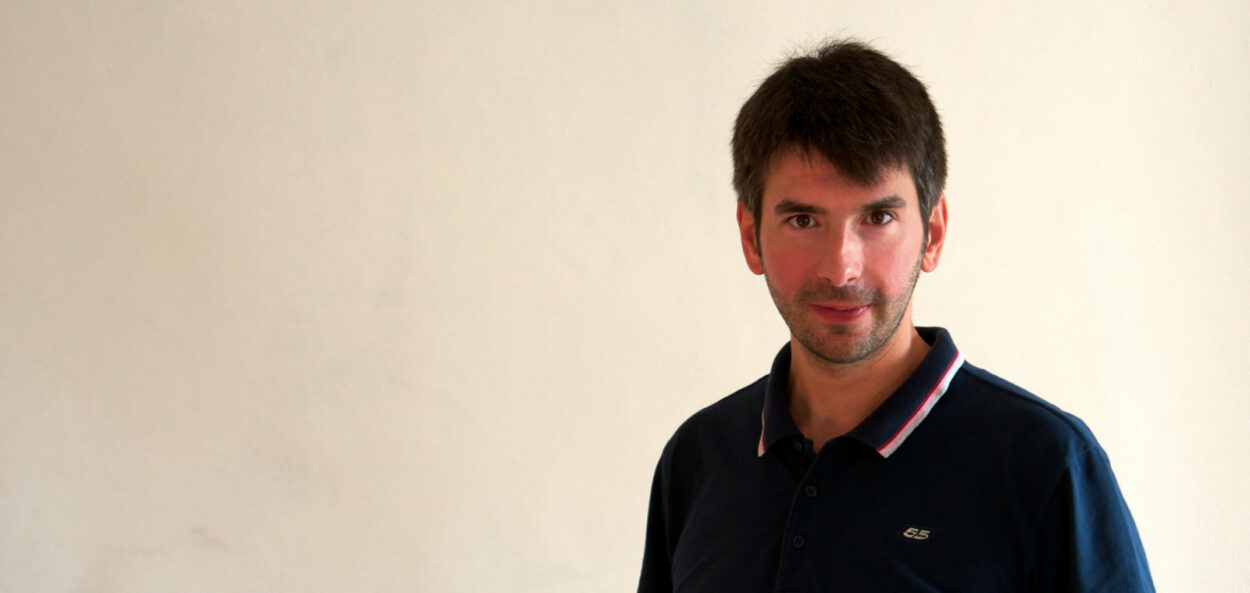Antonio works as a Senior Digital Project Manager for small to large-sized companies in Italy in the publishing and fashion industries. He’s also a journalist, and when not hiking in the Dolomites can be found on Fucinaweb. Follow Antonio on Twitter
The Day Job
What is the ratio of digital project managers to production staff at your company?
Usually the ratio is 5 to 7 production staff per Digital Project Manager, but this indicator varies a lot from company to company and it is very dependant on the project. A big, but recurring kind of project can require just one Digital Project Manager for every ten developers, while a critical one (for example in terms of innovation) can be split and assigned to two different Digital Project Managers.
Do you use any particular project management methodologies? If so, why? If not, why?
Having worked as a developer and team leader in the early years of my career, I certainly feel akin to agile project management, but I always try to find the right balance between using a strict approach and introduce the right amount of exceptions.
What online or offline tools do you tend to use for digital project management?
I’m a fan of the Inbox Zero paradigm and I do the best I can to keep my inbox folder quite empty or, better still, with only the important messages. For this to work, when I have the chance, I set up a project in Basecamp, or in the excellent open source Project Pier, and I ask stakeholders, developers and Digital Project Managers to use them as the main repository for documents, messages and information.
When I have to schedule the project I start with my old friend Microsoft Project, however lately I’m quite impressed by the possibilities of project management tools like LiquidPlanner. For the information architecture aspects of my role, I love to use Axure for prototyping and I am so excited for the port to the Mac platform!
How on earth did you end up managing digital projects? Few people start out with this aim. Tell me how you wound up being a full-time punch bag?
It happened by chance. As I previously said, I started as a developer for web related projects and after a few years I started managing developers and digital projects, and then came managing web designers, until finally I became the direct contact for stakeholders and clients.
The funny thing is, it took me some months to realise and understand that I was no longer just team leader, but a digital project manager. As I mention on my site, I don’t believe anyone intentionally starts their career as a Digital Project Manager!
Do you just manage digital projects or is your role varied? If so, what other roles do you perform?
I am more a manager of Digital Project Managers than a Digital Project Manager myself, in that I co-ordinate and help my team of Digital Project Managers. This does not mean, however, that I don’t work on projects.
I’m usually involved in critical and difficult digital projects in a supporting role for my colleagues. Apart from this, my team and I are also responsible for the information architecture of the projects, designing and delivering wireframes and prototypes – it seems that this is quite common for Digital Project Managers.
I’ve met many Digital Project Managers that also wear the hat of information architects, why? Maybe because the Digital Project Manager’s position is to illustrate to both the client and development team the problem that has to be analysed, and being good at prototyping is a required skill. In my particular case, I have to say that I really enjoy producing wireframes and prototypes.
What type of digital projects do you typically work on?
In my career I’ve been lucky enough to work for small, medium and large-sized companies in different fields, from publishing to fashion, and from software houses to web agencies. This means I’ve worked for websites of magazines that have millions of page views a month but also for small firms. I’m also involved in the building of intranets and internal management systems, such as Content Management Systems.
How many digital projects are you currently managing? What’s the most you’ve ever managed at any one time?
That really depends on the complexity of the project. I remember working on 15 concurrent projects two years ago, but they were simple in they nature. Sometimes a single project is enough to spend your nights and weekends working on it :-)
What percentage of a digital project’s total budgeted hours would you typically spend on project management?
This too depends on the complexity of the project, but usually it’s around 10-20%.
What digital projects are you working on right now, and what digital project are you most proud of to date?
I tend to judge the success of a project as a mix of different variables:
- The ROI (when applicable)
- The judgement of our client
- The mood of the development team
I’m proud when we succeed in reaching a balance of these factors.
If a digital project is sold, but the development team had to work late into the night for months, this is not a success. If the project uses state-of-the art APIs but the client is not happy, this is not a success.
If I had to choose one digital project that was a success, I think that the Cavit website, a wine business company in Northern Italy, is good example. It may not be the most exciting site in the world and not dripping with stunning features, but we were able to share the vision and goals with clients, stakeholders and development team, so that today we are more friends than clients and consultants.
Describe a typical day in the life of your role managing digital projects.
This really depends on the stage of the digital projects I’m following, but there are things I do every day. As a manager of Digital Project Managers the first thing we do is understand if there are problems related to one of the projects we are following. As a rule, we try to resolve problems as soon as we can, being small or big ones.
How would you describe your managerial style?
Sometimes I joke and describe myself a digital project psychologist.
The fact is that our role is first and foremost a matter of relationships – there are not two identical digital projects and the social problems that arise will require very different attitudes.
I gave a presentation last year, which you can read on my site, based on this concept at the Italian Better Software conference, called Project management 2.0.
In a great book by Tom DeMarco and Timothy Lister entitled “Peopleware”, they assert that “The major problems of our work are not so much technological as sociological in nature”
I could’t agree more.
What are the common things that crop up on a daily basis that destroy your planned activities for that day?
We live in an era of constant communication and this is both a good and a bad thing. On the bad side, in our typical work day we are constantly interrupted by questions, clarifications and problems.
While it’s not impossible to avoid them, I try to reduce them by using the right tool where possible, Basecamp and Project Pier, and also by investing the right amount of time before the project starts e.g. if your specifications are ambiguous, expect to be constantly interrupted during the development phase – try to act in advance to reduce interruptions.
How do you keep organised personally, given the hectic life that comes with managing digital projects?
As I’m organised in my work life, I’m not so during my spare time. I love not to have deadlines and schedules when I’m at home :-)
The Projects
At what point do you typically get involved with a digital project you are to manage? Pre-sales and estimating or only post-sale?
It depends on the project, but usually pre-sales, to help the client delimiting the project scope.
What technique do you use to estimate digital projects? Do you use different ones for small and large projects?
As I worked as a web developer and team leader before becoming a Digital Project Manager I have a good understanding on what the cost of a project could be – I have written about this in the FAQ Section of my website. That said, after an initial phase of requirements gathering, I involve the team leaders in order to consolidate ideas and estimate every task.
How do you handle unrealistic digital project budgets and schedules?
When it’s feasible we evaluate the various features with the client and try to split them into different releases. To be honest I try to do that even when there are not unrealistic budgets, as this approach leads to a better understanding of the potential of the project.
How does your company approach scheduling all the work currently in the pipeline?
Usually through a dedicated Project Management Office (PMO) team not strictly related to the project manager’s office. Digital Project Managers are responsible for single projects, PMO for the macro scheduling.
You receive a new digital project to manage, what are the first steps you’ll take?
Broadly understand the scope of the digital project and the stakeholders involved, the results are then written in a document that represents the skeleton of the macro specifications.
Do you manage all aspects of digital projects, like design, front-end and back-end development, or do department leads manage production based on requirements you capture?
In my experience I’ve had both experiences. As a former developer I have a slight preference for the former.
What deliverables do you personally typically produce on a digital project? Sitemaps, wireframes, functional specifications? Or are these produced by someone else? If so, who?
I love to develop wireframes and prototypes and for small projects, I still do that. But I’m not a pro, so I tend to use them just as a way to clarify doubts with the client – but generally these are not deliverables that will go into the development process.
What are all the things that will be defined and approved before design or development begins on one of your digital projects?
Usually the design begins when the client has approved and signed the functional specifications. The functional specifications document usually contain some visual addendum, such as wireframes or prototypes.
How do you tackle the art of monitoring digital project budgets versus progress?
With dedicated software, such as LiquidPlanner.
How do you manage the inevitable scope creep on digital projects?
I’d like to tell you that every change is reported to the client and developed at additional cost, but this just doesn’t happen. Usually I try to explain to the client that a late change is not a matter of cost, but of quality of the whole product.
What advice would you give for managing difficult clients?
It really depends what “difficult” means. If it means that he or she want frequent updates, clear specifications or if they strive to have the best project ever, I’m on his side. If “difficult” means not affordable, the best solution ever is to drop that client.
How do you ensure past mistakes on digital projects never happen again?
Analyse what went wrong, and why, at the end of the development cycle. I’ve written an article on this very subject called Learning From Ones Mistakes.
The Big Questions
What websites, blogs and podcasts are you currently using regularly for inspiration?
You can find a list of the resources I prefer in my Delicious feed.
What are the biggest differences between managing website projects and web application projects?
The differences are blurry, but usually a web application needs a better understanding of user behaviour and interaction. With a website, on the other hand, you’ll find youself talking with the client about what is beautiful and what’s not.
What do you think are the key personality attributes required to be a good digital project manager?
A good communicator, willing to constantly learn (and know that tomorrow everything will change), enthusiasm for the web, attention to detail and the awareness that the site will not work on the client’s browser.
What are the biggest common misconceptions about digital project management?
That it’s not real project management.
What, in your opinion, is the hardest part of digital project management?
Convincing the client that it’s necessary, because developing a site for his company is different from his daughter playing with Dreamweaver at school.
In three words, how would you describe digital project management?
Management on steroids! (kidding)






I think inbox zero is the only way to handle the amount of email a project manager gets! I highly highly suggest if you are project managing you look into it. Even with inbox zero I think project management is all about communication and sometimes that volume of emails is just overwhelming. I feel like I come in the morning and BAM my morning is consumed with communication from clients asking for support, information or general questions. Its truly an art to stay upbeat and positive when dealing with such large volume of communications. That’s my two cents ahahha . . .. email is such a large part of what we do daily!
@Elizabeth, thanks for your comments. You’re right, Inbox Zero is the ONLY way… personally, without it I would lose track of my work within just a couple of days.
Great interview.
If you’d like a tool for managing your time and projects, you can use this application inspired by David Allen’s GTD:
http://www.Gtdagenda.com
You can use it to manage and prioritize your goals, projects and tasks, set next actions and contexts, use checklists, schedules and a calendar.
Comes with a mobile version too, and with an Android app.
@Dan, glad you liked the interview! I looked into GTD Agenda and it did look quite good, but I found Tracks / GTDify was a more simple and neat solution… I wrote about it in GTD for Web Project Management Revisited – Tracks & GTDify